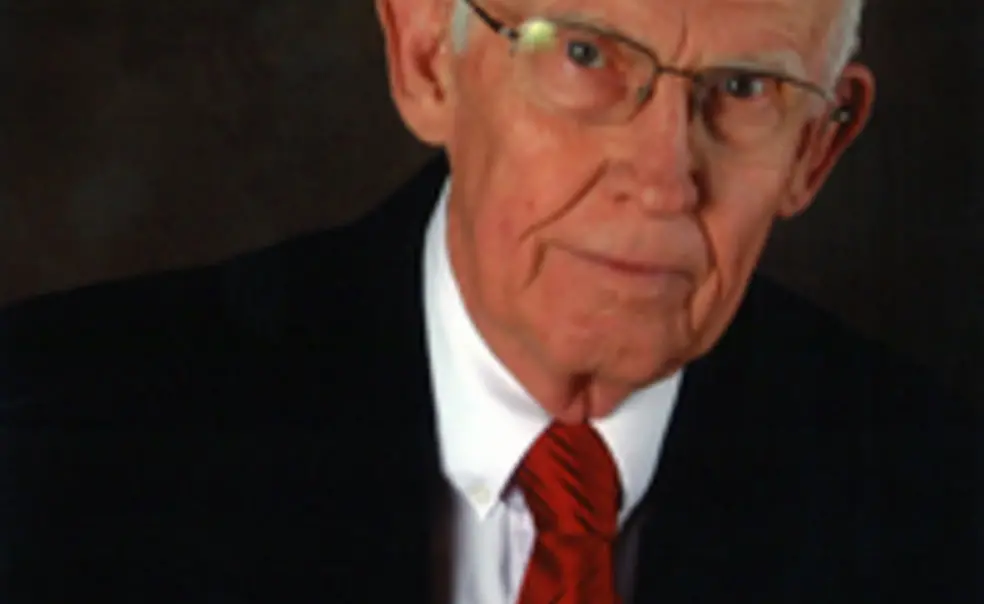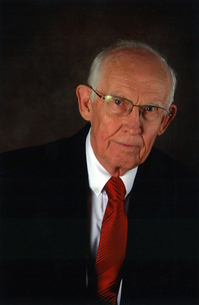Goldsmith '59 offers churches ideas on facing death
Dale Goldsmith ’59 (Photo: Courtesy Brazos Press)
New book: Speaking of Dying: Recovering the Church’s Voice in the Face of Death, by Fred Craddock, Dale Goldsmith ’59, and Joy V. Goldsmith (Brazos Press)
The author: Dale Goldsmith, who majored in religion at Princeton, was a professor of philosophy and religion at McPherson College in Kansas and a professor of Biblical languages and literature at the Baptist Seminary of Mexico. A former pastor, he also wrote New Testament Ethics. Goldsmith decided to write this book after seeing how the death of his daughter Janet, a pastor, was handled in her congregation and determining that churches should talk more openly about dying.
The book: The coauthors, who examine how 10 congregations faced the deaths of their pastors, argue that churches are not adequately serving the dying and their families, while the church has “outsourced the management of dying to institutions other than itself.” The coauthors offer ideas on how “the church can help its members die well,” by drawing on theological resources and faith. And they discuss how to talk to a dying person.
Opening lines of chapter one: “Ten years ago, Pastor Janet Forts Goldsmith died of cancer. Janet died while she was the associate pastor of a midsized Presbyterian church in the South. She was the daughter and sister of two of the coauthors (Dale and Joy) and the former seminary student of the third coauthor (Fred). … We noticed that Janet’s position in the church made her dying even harder. Her congregation was unable to engage the subject of her dying, to communicate openly and well about it. Denial and ambiguity clouded an already difficult situation.”
Review: Publishers Weekly wrote, “Arguing that the church has ceded end-of-life care to the medical profession and neglected or forgotten available gospel resources, the authors, themselves theologians and preachers, offer a theological rationale and practical guidance for caring for the dying within congregational settings. … The authors … present challenges inherent in today’s secular, biomedical culture, and they argue the need for ‘a theology of dying.’”














No responses yet